
“Knowledge is a treasure, but practice is the key to it.” ― Lao Tzu
By Gabrielle Passick
Last time, we left off with Libraries, Books, & Bibliophiles in Artwork, which provided us with an introduction to the world of art. Specifically, we have discovered the role art plays in libraries in Art and Relaxation in Libraries. When you think about libraries, what comes to mind? There are a plethora of different forms of libraries that currently exist. We will explore each of these various gateways of knowledge together.
1.) Public Libraries
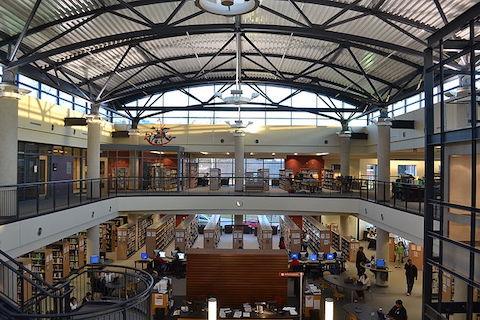
According to the Institute for Museum and Library Services, “A public library is established under state enabling laws or regulations to serve a community, district, or region, and provides at least the following:
- an organized collection of printed or other library materials, or a combination thereof;
- paid staff;
- an established schedule in which services of the staff are available to the public;
- the facilities necessary to support such a collection, staff, and schedule, and
- is supported in whole or in part with public funds.”
Public libraries are actively supporting communities via resources, complimentary training, courses, and fundraising. As we have seen in Art and Relaxation in Libraries, public libraries often have many programs focused on children, young adults, and adults. These programs may include topics relating to Libraries and Career Preparation, reading hours, homework help, book discussions, crafts, yoga, and more. Monthly book discussions are usually found here. Public libraries work together with neighboring school districts. In addition, free performances can be offered in a public library setting.
2.) Academic Libraries
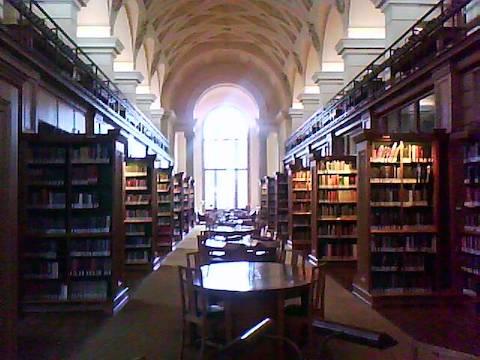
Cambridge, circa June 2009 Source: Wikimedia commons
Law Insider defines academic libraries as, “…a library that is part of a college or university that is publicly or privately funded and whose primary role is to provide resources to enrich and support the school’s curricula and the research needs of students and faculty.” Academic libraries are focused on the tools college students need to excel in their classes. Very often, there will be a technology resource center, writing center, and tutoring department all within different wings of a library. Not to mention, the presence of a coffee shop is highly likely! The writing and tutoring centers specialize in nearly every subject. Students are paired with another student in the given subject field who have a solid understanding of concepts, strategies, and educational support. The technology centers may provide the entire university/college technical support, free access to downloadable softwares, printers, and usage of equipment such as headphones or thumb drives. University and college libraries tend to include more floors than a public library. There is a wider array of content and materials available for students, faculty, and staff. Microfiche, or small films are commonly found here. There may be a larger collection and access to academic journals, databases, and magazines. There are a greater number of computers available to patrons. More subject-specific textbooks can also be found. Universities may include a music library within the main library itself or inside the music building.
3.) Medical Libraries
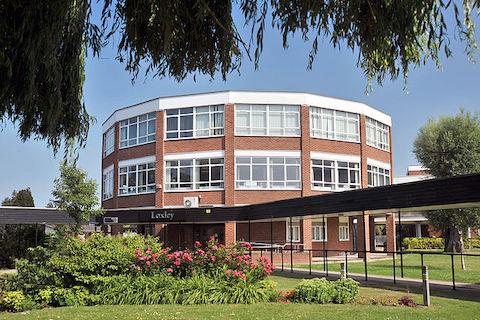
located at the University of Hull Source: Wikimedia Commons
Medical libraries are mostly located in medical schools, hospitals. These libraries contain information to a large audience, not just to med students, doctors, and nurses. Definitions.net states, “A typical health or medical library has access to MEDLINE, a range of electronic resources, print and digital journal collections and print reference books. The influence of open access and free searching via Google and PubMed has a major impact on the way medical libraries operate.” Similar to academic libraries, there are specific databases available to those seeking information within the medical field. Purdue University has an extensive guide listing Free Drug Information Resources available to the general public.
4.) Music Libraries
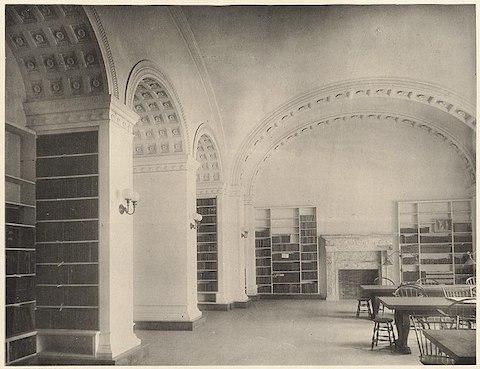
by N. W. Elwell, 1896, Plate XXV
Source: Wikimedia Commons, Public Domain U.S.( NoC-US)
Now we can take a look into my absolute favorite of all libraries…music libraries! Music libraries are part of orchestras, museums, opera houses, colleges, universities, and certain companies relating to the field of music. One library that I have always dreamed of visiting is the Beethoven-Haus Library in Bonn, Germany. Have you had the opportunity of visiting? Music libraries offer extensive music scores, compact discs, vinyl records, and other means of audio/visual technologies. There may even be a basement section of your local music library featuring archives. These collections may include viewing rooms of microfiche, recordings, and scores dating back to Medieval or Baroque times. Access to subscription based databases including Medici.tv and Met Opera on Demand are possible. A music librarian will be able to assist you with locating specific records, scores, or perhaps, with the download of music notation softwares. Maybe there is a documentary or textbook you are interested in browsing. A librarian will be happy to help you!
5.) Art Libraries
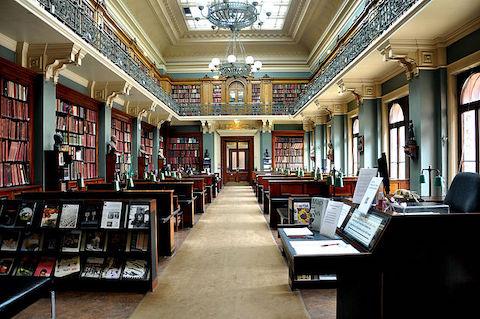
Source: Wikimedia Commons
Many may ponder as to what the duties of an art librarian involve. A blog on Wisegeek has the following answer, “ An art librarian is responsible for managing, organizing, and updating a collection of art-related books, often in a museum or non-profit research center.” Similar to music librarians, art librarians have extensive knowledge on history, archives, and reference resources relating to art. Collections may also be digitized. Have you ever been to the Museum of Modern Art Archives, Library, and Research Collection (ALRC)? The Art Libraries Society of North America includes a list of Featured Art Libraries to visit. Next time you plan a museum trip, see if you can visit its library as well.
6.) Law Libraries
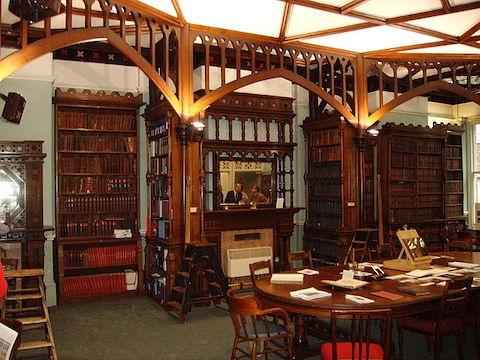
New World Encyclopedia defines a law library as, “A library designed to assist law students, attorneys, judges, and their law clerks in finding the legal resources necessary to correctly determine the state of the law.” Certain law libraries are open to the public. The National Jurist lists 199 of the Best Law Libraries. Similar to the other special libraries we have observed, law libraries contain several online catalogs. Remote assistance is becoming more common.
7.) Business/Corporate Libraries

Last but not least, we will discuss business and corporate libraries. Business libraries are mostly referring to a school of business or economics. A business library may have resources inside of a main academic library or inside of a business school classroom building. Corporate libraries are specifically focused towards the corporation’s workers. Wiki Archives does an excellent job of further explaining the Corporate Library Services.
As a prospective librarian, creating this series has been a heartfelt journey. Libraries are certainly a gateway of knowledge. While we have not explored every form of special libraries, we have discussed the most common types of libraries. Have you visited any special libraries? Feel free to leave a comment entailing your experience. Please stay tuned for next month’s articles.
Thank you for reading!
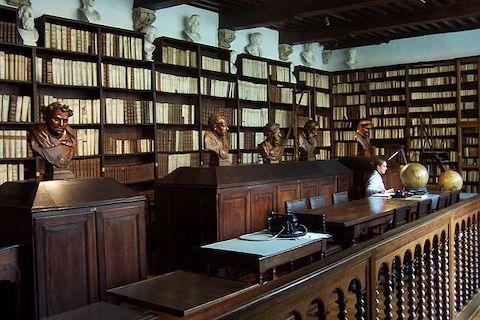
Source: Wikimedia Commons
Libraries: Gateway of Knowledge – Collection:
Libraries, Books, & Bibliophiles in Artwork
Art and Relaxation in Libraries
Libraries and Career Preparation
Language in the Library
Music in the Library
Greatest Libraries of the Ancient World
Greatest Librarians of Our History
Sources:
1.) ALA General Definition
2.) ALA Special Libraries
3.) Types of Libraries
4.) Wiki Special library
5.) LIS BD Network
6.) There’s a Library for That
7.) Ilovelibraries
8.) Maine SL Directory
9.) World Guide to SL
10.) History of SLA
11.) Importance of SL
12.) Beethoven-Haus Bonn Library 1
13.) National Library of Medicine
14.) NYPL for the Performing Arts 1
15.) The Morgan Library and Museum
16.) MoMA
17.) 199 of the Best Law Libraries

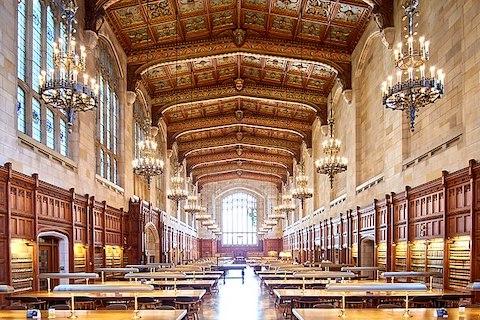

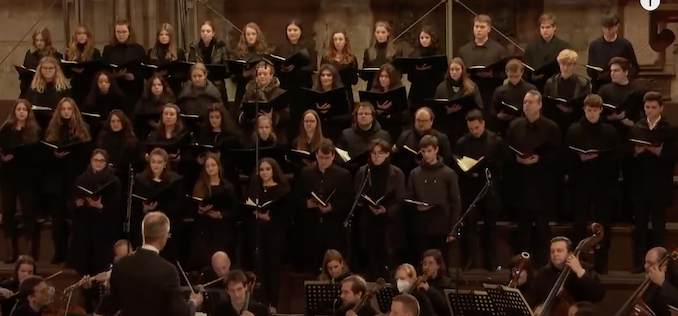



I love music libraries, too! I worked in the music library during all 4 of my undergraduate years at UNC Chapel Hill. It was one the best in the country. This was back in the days of LPs so I pulled a lot of records for students doing their required listening for class,
Hello Ginger,
Thank you for your comment. This must have been a rewarding experience! As part of a final project, I recently interviewed the music librarian at my university to better understand the data lifecycle. Along the way, I discovered the abundant resources and collections of the Theodore M. Finney Music Library. Music librarianship certainly is a fascinating field.